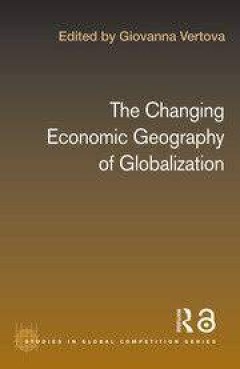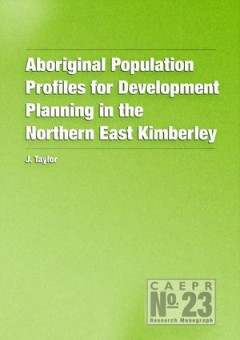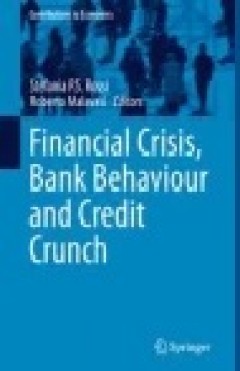Filter by

Capital Returns : Investing Through the Capital Cycle: A Money Manager’s Re…
We live in an age of serial asset bubbles and spectacular busts. Economists, policymakers, central bankers and most people in the financial world have been blindsided by these busts, while investors have lost trillions. Economists argue that bubbles can only be spotted after they burst and that market moves are unpredictable. Yet Marathon Asset Management, a London-based investment firm managin…
- Edition
- -
- ISBN/ISSN
- 978-1-137-57165-6
- Collation
- -
- Series Title
- -
- Call Number
- 650

Conflict and Change in EU Budgetary Politics
Why did the European Union experience a stark variation in the levels of conflict between the late 1970s, when budgetary disputes dominated European politics, and the 1990s, when political actors were able to settle upon budgetary agreements without major conflicts? This book responds to this key question with a two-step argument: Its first part shows that decision-making rules can be regard…
- Edition
- -
- ISBN/ISSN
- 9780203002766
- Collation
- -
- Series Title
- -
- Call Number
- -

The Changing Economic Geography of Globalization
The process of globalization has had profound, often destabilizing, effects on space, at all levels (i.e. local, regional, national, international). This revealing book analyzes, both theoretically and empirically, the effects of globalization over space. It considers, through a dialogue among different paradigms, the ways in which space has become more important in the global economy. Globa…
- Edition
- -
- ISBN/ISSN
- 9780203000403
- Collation
- -
- Series Title
- -
- Call Number
- -

Calculus for Cognitive Scientists : Partial Differential Equation Models
This book shows cognitive scientists in training how mathematics, computer science and science can be usefully and seamlessly intertwined. It is a follow-up to the first two volumes on mathematics for cognitive scientists, and includes the mathematics and computational tools needed to understand how to compute the terms in the Fourier series expansions that solve the cable equation. The latter …
- Edition
- -
- ISBN/ISSN
- 978-981-287-880-9
- Collation
- -
- Series Title
- -
- Call Number
- 515

Financial Ratios for Executives
Financial Ratios for Executives is written specifically with today’s global executive in mind. It makes financial ratios easy to understand and use effectively. This short book will prove invaluable to both financial and non-financial executives looking for easy, intuitive methods to assess corporate health and assist in strategic decision making.
- Edition
- -
- ISBN/ISSN
- 978-1-4842-0731-4
- Collation
- VIII, 148
- Series Title
- -
- Call Number
- -

Financial Modeling for Business Owners and Entrepreneurs
In addition to many valuable exercises and tips for using Excel to model your business, this book contains a combination of practical advice born of hard-won lessons, advanced strategic thought, and the insightful use of hard skills. With a basic knowledge of Excel assumed, it will help you learn to think like an experienced business person who expects to make money on the products or services …
- Edition
- -
- ISBN/ISSN
- 978-1-4842-0370-5
- Collation
- XX, 348
- Series Title
- -
- Call Number
- -

Ignitability and Explosibility of Gases and Vapors
The book provides a systematic view on flammability and a collection of solved engineering problems in the fields of dilution and purge, mine gas safety, clean burning safety and gas suppression modeling. For the first time, fundamental principles of energy conservation are used to develop theoretical flammability diagrams and are then explored to understand various safety-related mixing pro…
- Edition
- -
- ISBN/ISSN
- 978-1-4939-2664-0
- Collation
- XXII, 213
- Series Title
- -
- Call Number
- 338 MAT i

Identifying Product and Process State Drivers in Manufacturing Systems Using …
The book reports on a novel approach for holistically identifying the relevant state drivers of complex, multi-stage manufacturing systems. This approach is able to utilize complex, diverse and high-dimensional data sets, which often occur in manufacturing applications, and to integrate the important process intra- and interrelations. The approach has been evaluated using three scenarios from d…
- Edition
- -
- ISBN/ISSN
- 978-3-319-17610-9
- Collation
- XVIII, 272
- Series Title
- -
- Call Number
- 621 WUE i

Aboriginal Population Profiles for Development Planning in the Northern East …
Aboriginal australians; Western australia; Kimberly; Population; Economic conditions; Social conditions
- Edition
- -
- ISBN/ISSN
- 9781920942038
- Collation
- -
- Series Title
- -
- Call Number
- 338 TAY a

Financial Crisis, Bank Behaviour and Credit Crunch
This book explores some relevant distortions and market failures in financial and banking markets caused by the recent financial crisis and offers important insights to policymakers as well. After having introduced the reader to the economic background behind the origin of the present financial turmoil, the book proposes a distinct angle to look at some macro and microeconomic aspects. The v…
- Edition
- -
- ISBN/ISSN
- 978-3-319-17413-6
- Collation
- XII, 193
- Series Title
- Contributions to Economics
- Call Number
- -
 Computer Science, Information & General Works
Computer Science, Information & General Works  Philosophy & Psychology
Philosophy & Psychology  Religion
Religion  Social Sciences
Social Sciences  Language
Language  Pure Science
Pure Science  Applied Sciences
Applied Sciences  Art & Recreation
Art & Recreation  Literature
Literature  History & Geography
History & Geography